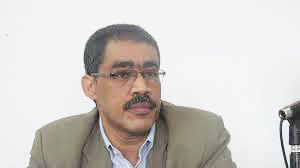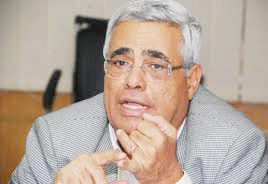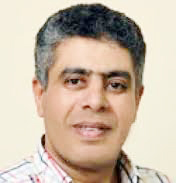Opinion writers have condemned the presidency for its passive reaction towards the violence that continues to take place in many Egyptian cities. Although President Mohamed Morsy has called for dialogue with a number of political figures after addressing the nation in a televised speech on Sunday evening, more than one writer has placed the full responsibility on the president.
Diaa Rashwan
Egypt on the verge of collapsing
Al-Masry Al-Youm newspaper
For this writer, Egypt has entered a long dark tunnel under Morsy’s administration. In his column, Rashwan directly addresses Morsy and asks him to consider the instructions given to him by his Muslim Brotherhood group, before taking any decisions. The writer is scared that the coming period will witness the fall of the Egyptian police force, as happened two years ago during the 18-day uprising.
For Rashwan, there are some signs of internal police division. In Suez, police have disobeyed their officers and decided to shoot protesters. In Port Said, a number of officers removed the interior minister from the funeral of one of their colleagues. Many police officers decline to be used by the current regime in the same way they were used before the revolution.
Rashwan tells Morsy that hiding shows that either he is incapable to confront hard situations or that he is underestimatng the danger. He calls upon Morsy to react positively to the situation or risk his legitimacy.
Hassan Nafaa
A political cover or political chaos?
Al- Masry Al-Youm newspaper
Nafaa criticises Morsy’s latest meeting with the National Defence Council (NDC). He argues that the council is overwhelmed with a military majority and aims to protect that national security of the country. According to the constitution, the NDC was established to study any external dangers threatening the country and debate draft laws related to the budget of the military. Nafaa wonders why Morsy has called for this particular council to meet up amid the escalating violence erupting in several governorates.
During the council meeting, generals and heads of army branches were present alongside the ministers of finance, interior, foreign affairs and defence. The ministers of justice and information were also present although they are not official members of NDC. Does the current situation necessitate a military intervention? Is this why Morsy has thought of calling this council? Nafaa asks if the presidency is unable to control the crisis.
Emad Al-Din Hussein
Blood for blood and gunfire for gunfire
Al-Shorouk newspaper
Hussein places the blame squarely on the presidency for all the deadly clashes across Egyptian cities. Recalling the slogans chanted in Tahrir Square like “blood for blood and gunfire for gunfire…we don’t want it peaceful any more,” the writer highlights that the coming period will witness a great deal of bloodshed and violence due to Morsy’s passivity and inability to control the situation.
He mentions the “Black Bloc” group, which calls for violent protest. He also condemns the Muslim Brotherhood’s attempts to further escalate the situation since the demonstrations that surrounded the Presidential Palace following a 22 November constitutional declaration.
He recalls how “Hazemon,” the political group supportive to the Salafi figure Hazem Salah Abu Ismail, surrounded the media production city for no proper reason. The writer believes that the violence is an accumulation of verbal conflicts between Islamists and non-Islamists.
Today, it is the role of the presidency, as the most important institution in the country, to contain the situation before more people die. Hussein believes it is his role as a writer to remind the president and his team, being the administrators of this country, of the extent of danger Egypt is facing. The probability of a civil or a sectarian war is quite high.
Emad Al-Din Adeeb
A crime against the nation
Al-Watan newspaper
Adeeb describes these days in Egypt as a “hysterical case of group violence.” This extreme chaos occurs when all political groups decide to freeze dialogue and follow the most violent way. Although several efforts have been made to contain the situation and bring this unprecedented violence to a close, nothing has managed to restore Egypt’s stability.
The writer expresses his disappointment at seeing the military deploying its forces along the Suez Canal to protect the country from angry protesters, not from the Israeli forces. Who could have imagined that Egypt would witness a day when a when a new term is required to differentiate between a peaceful protester and a violent one. We need to instantly stop calling those who throw stones, vandalise property or use weapons as “demonstrators”. The real revolutionary is known for his peaceful protest, where as the “angry protestors” do not relate to the revolution or its goals.







